Nurturing Faith
By Erin Davis, Auckland, New Zealand
Scripture Reading
- Habakkuk 3:17-19
Though the fig tree does not bud
and there are no grapes on the vines,
though the olive crop fails
and the fields produce no food,
though there are no sheep in the pen
and no cattle in the stalls,
yet I will rejoice in the Lord,
I will be joyful in God my Savior.The Sovereign Lord is my strength;
he makes my feet like the feet of a deer,
he enables me to tread on the heights.Habakkuk 3:17-19
Faith. It’s something at the heart of our lives as Christians and yet seems so hard to define. A quick concordance search shows me that faith is being sure of what we hope for and certain of what we do not see. Faith can make mountains and trees move. Jesus heals people because of their faith. We’re justified through our faith. Faith is expressed through love. Without faith, it is impossible to please God. Faith without deeds is dead.
I have often felt a bit lost with the concept of faith. I always thought faith was about belief, strong and unshakable without a shadow of a doubt. But looking at Habakkuk, who is the portrait of a faithful man, it’s hard to see how faith, belief, and standing strong in the face of harsh realities all fit together.
He isn’t just talking about a bad harvest or low cash flow situation. He’s talking about trees that aren’t producing because they are planted in land poisoned with injustice and violence. He’s lamenting his people losing their way. He’s looking down the barrel of the Babylonian invasion which would destroy their homes and take them into captivity, where they would lose their ancestral lands, their culture, their places of worship, and their language. These are the deepest griefs, the kind that have left so many in our world deeply scarred and wounded through generations. How then can he speak of joy and strength?
I invite you to meander with me into the world of Habakkuk and meditate on the nature of faith.
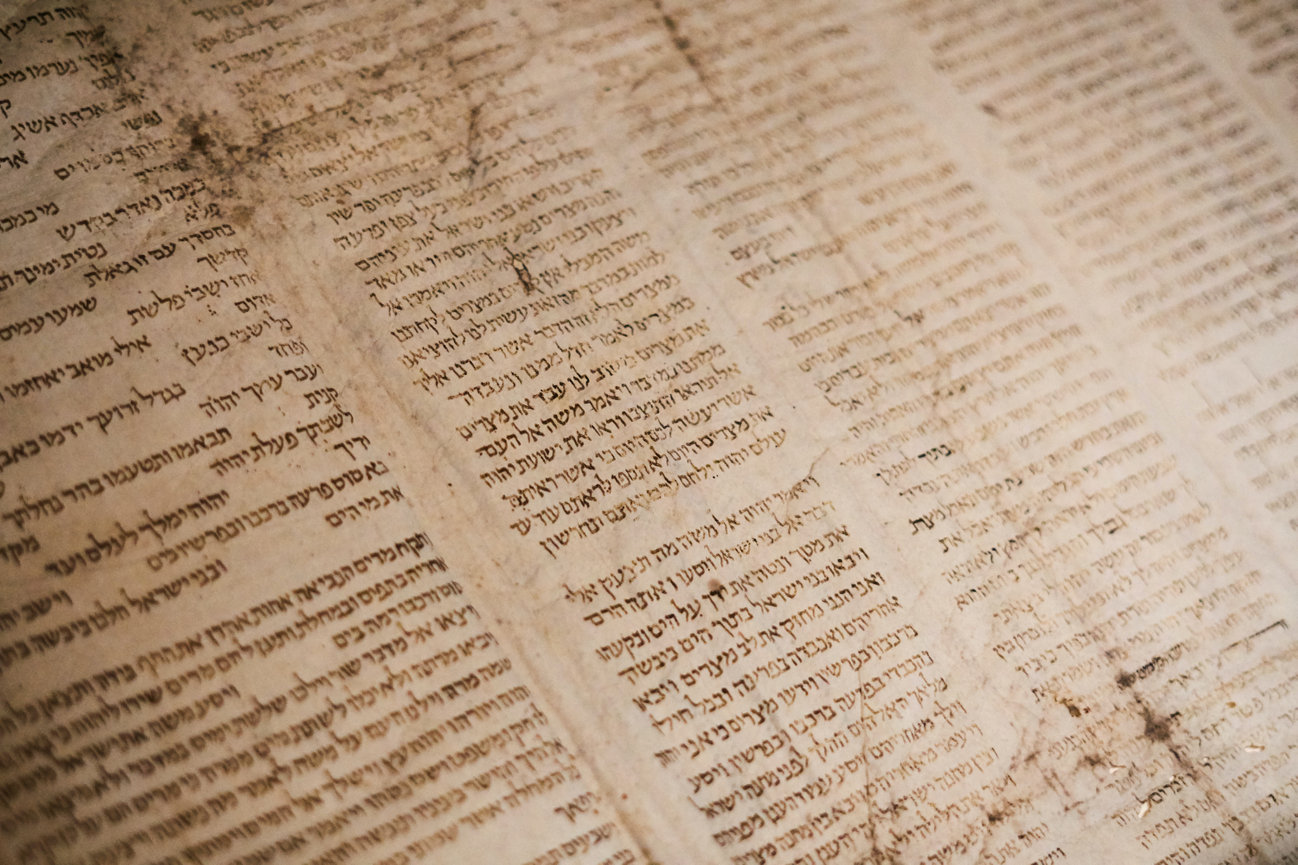
I speak English. I think in English. English is the kind of language that is heavy on nouns. My language influences the way I see the world. I like things to be named and categorised, I don’t like fuzzy definitions. But to someone who grew up with Hebrew as their first language, their way of thinking about the world will be different from mine.
Hebrew is a metaphorical language; it uses concrete pictures to explain abstract concepts. One Hebrew word can require several paragraphs and stories to fully translate into English. Bible translators have their work cut out for them!
The word most often translated as faith in Hebrew is emunah. This means something like being solid or secure. When Moses’ arms were tired from holding them up in Exodus 17:8-12, Aaron and Hur held them for him so they remained steady (emunah).
God is described as emunah in Deuteronomy 32:4, where He is called a rock. Emunah is used in the sense of trust, of truth, to describe the pillars of a house—things you can rely on.
But there’s another image used to paint the picture of faith, something that seems on the surface in complete contrast to rocks and foundations and pillars and strong arms. The root word of emunah also has the meaning of raising, nursing, and nurturing a baby. This is a beautiful image, but how does it fit in with the picture of solid, steady faith?
Meditating on this, so many scriptures spring to mind. It makes me think of a God who nurtures his children, nourishes them, carries them, doesn’t forget them, and doesn’t put them down.
When we nurse a baby, what do we give to them? Whether we are feeding from our breast or a bottle, if you’ve been involved in nurturing a baby, you know that the act of feeding is about so much more than food.
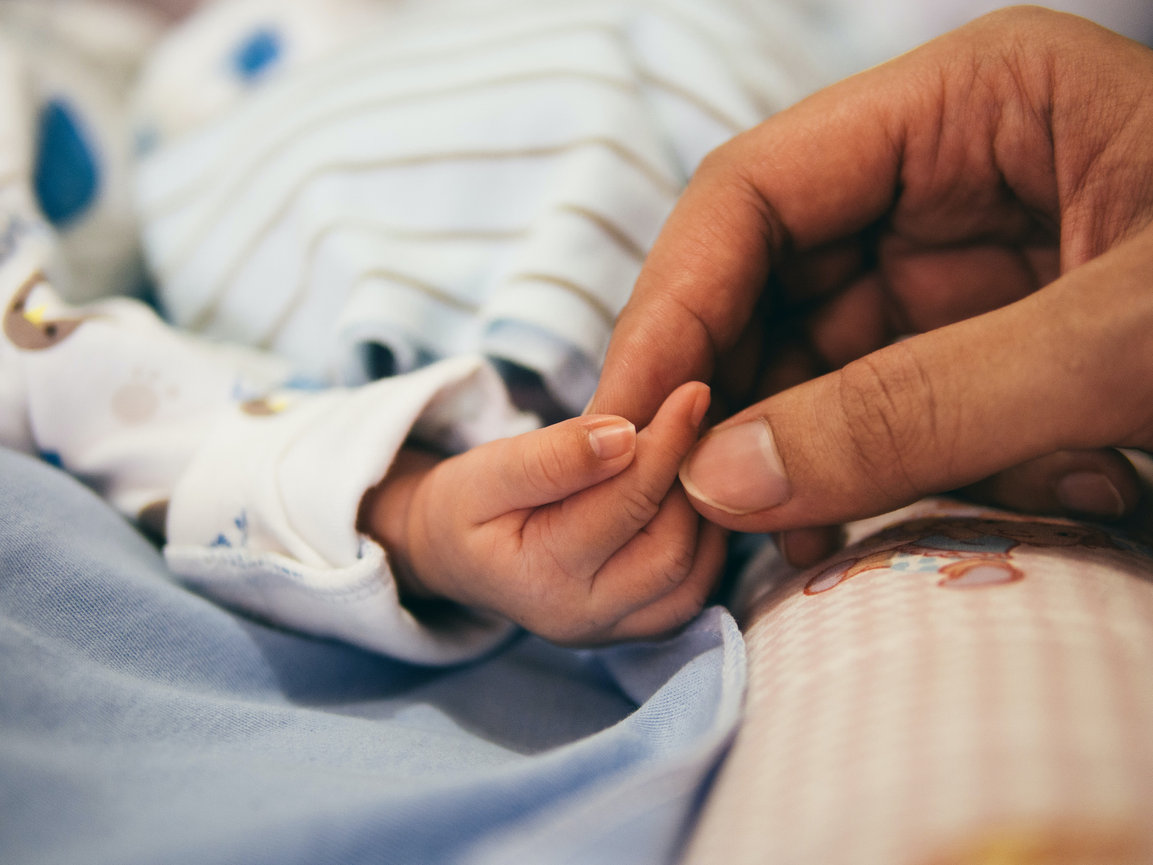
Responding to their cries, holding them close, gazing into their eyes, cradling them—it all helps regulate their emotions, feel secure and attached, and give them a solid and sure foundation in life. As they feed, they are receiving the gift of connection to you, just as you are passing on the connections you have from all those who have nurtured you. You are passing on everything that makes you secure. Babies who are raised in those sensitive early years by responsive parents are more secure and are more likely to be more deeply rooted as adults.
I was discussing this with a wise friend who is New Zealand Māori, who immediately connected with this idea. The word for nursing in te reo Māori is ūkaipō, which, although literally means “feeding through the night,” is also used to talk about connections to roots, to ancestry, to land. It is everything that makes a person strong, solid, and secure. I think this would’ve made sense to Habakkuk and his people.
I suddenly feel my concept of faith bursting with meaning and beauty. Belief is a small part of the picture; the rest of it is filling in with brushstrokes of connections to God, connections to my community of believers, and connections to those who have walked these paths ahead of me. It is vibrantly coloured with the roots I have struck, the ways I have been nourished. It seems faith is less about eliminating doubts and more about clinging to what sustains me and gives me life.
When you are feeling like life is unstable, there is a whakatauki (Māori proverb) that says: kua hoki mai nei ki te ūkaipō — return to the roots of your physical and spiritual nourishment. The Hebrew word for repent, by the way, is shuv — to return (a study of this word would be a fruitful offshoot).
So perhaps now, with a slightly more Hebrew understanding of faith, I can sit with Habukkuk and discuss his worldview. Although I’d rather my friend discussed it with him and I could just listen. I feel they would have much in common!!
Because, if faith is about connections and loyalties and understanding the source of life, no matter what is going on around us, we can plant our feet and stand strong. If faith is about those connections and relationships, my faith will be separate from my circumstances. My faith will show the quality of my relationship with God. If that relationship is transactional and conditional, so will my faith be. As soon as I see things are not turning out the way I wanted, my loyalties will disappear.
But if my relationship is built on loyalty and love and trust, then, regardless of whatever is going on, I will trust that my God is still with me, that God knows the bigger picture, that God can care for the whole of his creation, and that if it feels like I am suffering right now, it doesn’t mean God is stacking things up against me personally.
It strikes me that, if this is faith, I can’t have faith all on my own. It requires a community around me, it leans on the legacy of the past, and it flourishes when I walk hand-in-hand with the God who shaped and nurtured me. My faith finds its strength in those deep roots, in the choices I make, the paths I walk, and the thoughts I ponder. It's rooted in understanding where I come from.
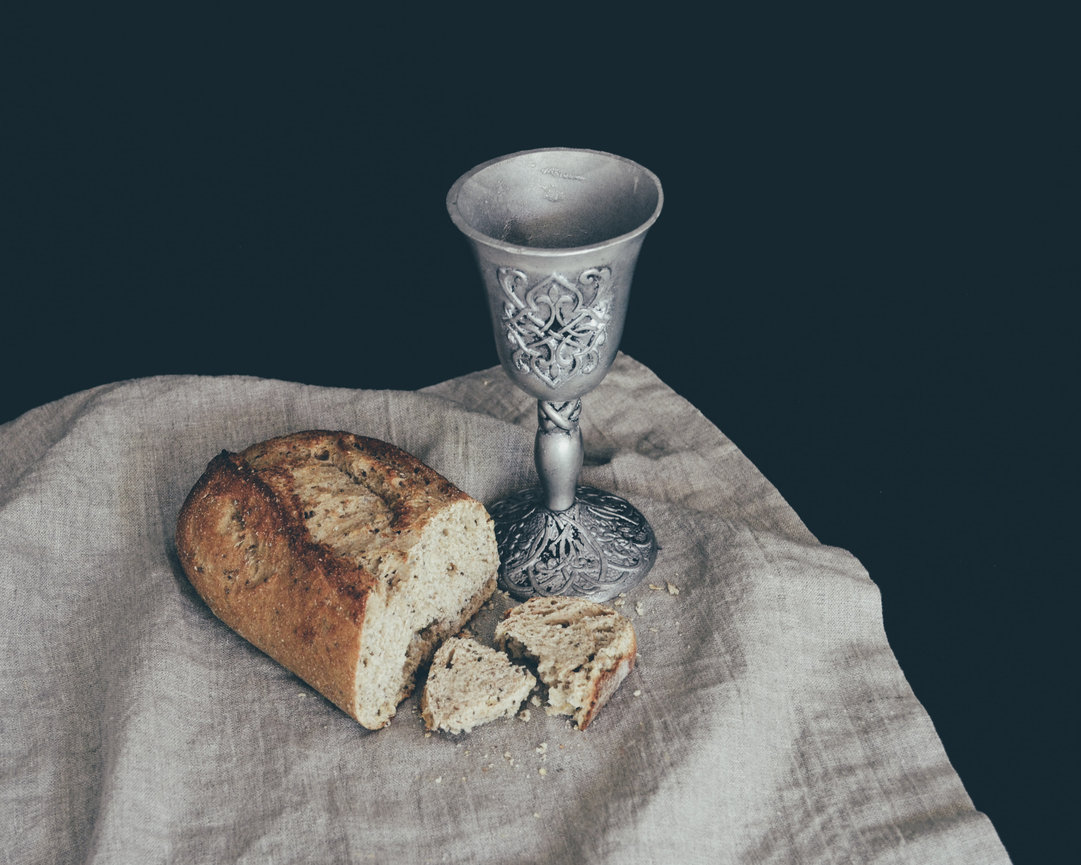
I think of the ritual of taking communion—it's a bridge connecting me to countless others throughout history who've shared in that act of breaking bread and sipping wine. It spans all the way back to that small group in the upper room with Jesus and extends even further to the Israelites, who gathered in their homes for their final meal in captivity. It prompts them to take a moment to reflect deeply on the complicated processes that got them there and the grace and love that is now getting them out. When I break bread with my brothers and sisters now, I am also breaking bread with our grandmothers and grandfathers in the faith. I am breaking bread with Sarah and Rachel and Miriam and Abraham and Habakkuk.
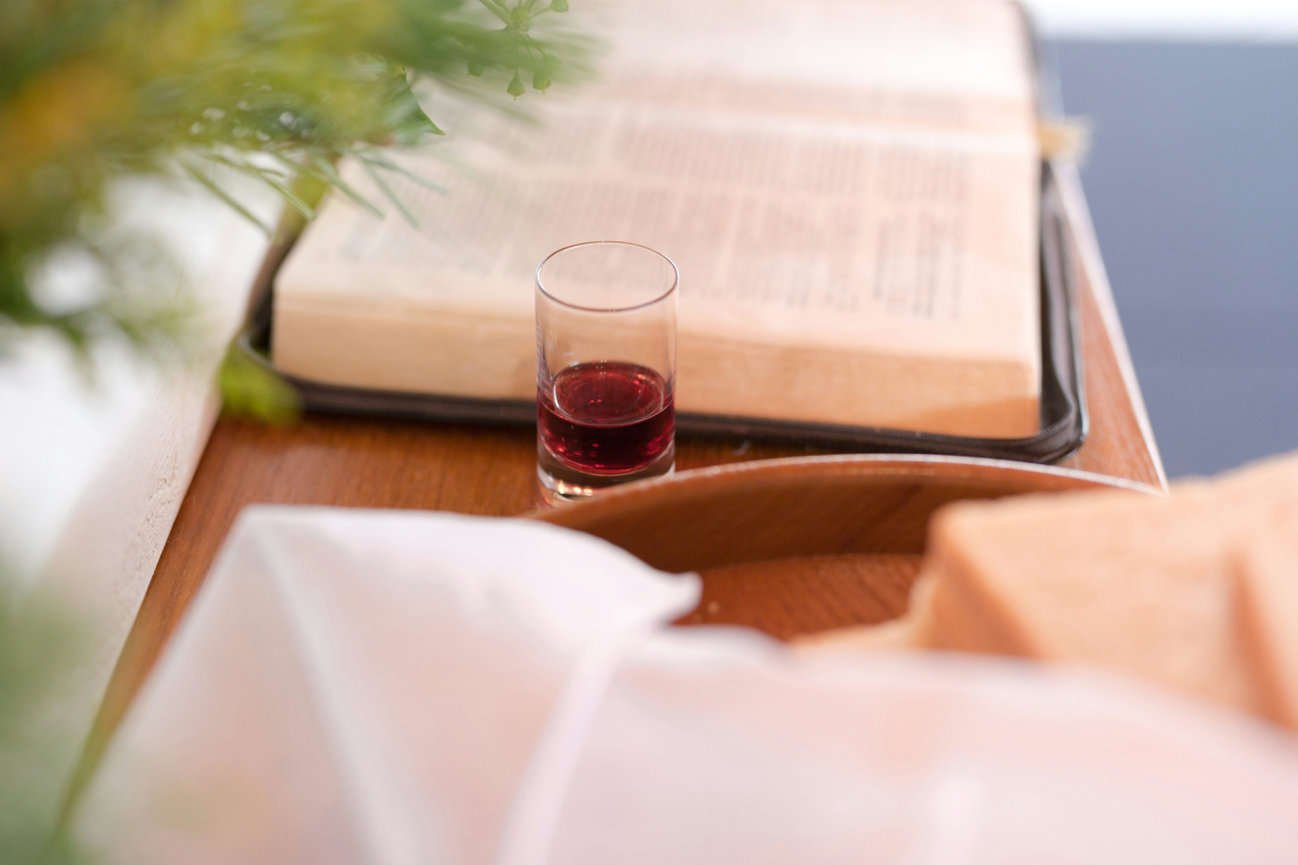
I have been a follower of Christ since I was 18, and my understanding has grown and shifted through the decades with life experiences. I have had to navigate health challenges that have often kept me housebound, the loss of my marriage and the challenges of suddenly raising four beautiful children in a complicated family situation, times of financial struggle, times of joy and grief, and times of deep loneliness. I have battled anxiety and depression. I have had many times when my belief in things that I think I should feel certain of as a Christian has been very, very shaky.
For much of my walk, I felt that this was evidence of my failure and weakness. However, I have come to see it differently. Because through the turbulence of my life, I have chosen to remain in God. I have begged God to show me patience while I figure stuff out. I have chosen loyalty. I have sought to connect with God as the source of all life, with the land He has created, with my community, and with my spiritual ancestors. Like Habakkuk, in the midst of it all, I have been able to find strength and joy. And this, I now understand, is faith.
Questions for Reflection
- What is it that makes you solid?
- What does it mean for you to have deep roots?
- How does the idea of nursing alter your understanding of faith?
- In what ways can you return to your roots when you feel less than solid? What daily or weekly practices might you adopt or already do? Perhaps try looking into the traditions in your own culture, or the traditions of the indigenous cultures where you live. How can broadening your perspective in this way flesh out your understanding of the idea of faith?
Today I will
- Try praying this prayer of Paul’s:
For this reason I kneel before the Father, from whom every family in heaven and on earth derives its name. I pray that out of his glorious riches he may strengthen you with power through his Spirit in your inner being, so that Christ may dwell in your hearts through faith. And I pray that you, being rooted and established in love, may have power, together with all the Lord’s holy people, to grasp how wide and long and high and deep is the love of Christ, and to know this love that surpasses knowledge—that you may be filled to the measure of all the fullness of God.
Ephesians 4:14-19
If you’re interested in the NZ Māori perspective I have mentioned, here are some lovely articles:
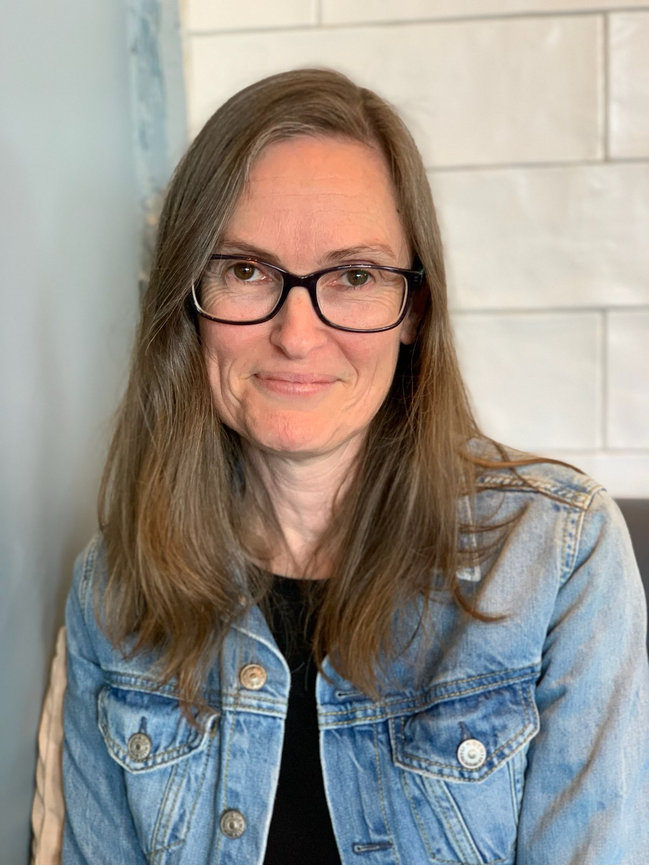
About the Author
Erin Davis has been a disciple for 30 years. She is a single mum of four children, a 19-year-old, a 16-year-old, and 11-year-old twins. Erin is known for her deep love of written language and she takes this love into her deep dives of scriptures. She is passionate about the story of the Bible and about seeking to honour and explore different perspectives and points of view. Her wisdom, wit, and self-deprecating humour have encouraged many disciples to take a deeper, more humble look at the scriptures.


13 Comments
Dec 17, 2023, 12:21:04 AM
Kimberley - Beautifully written Erin! I feel inspired to expand my own comprehension of faith and to consider different world views. Thank you for sharing your wise thoughts, you are a blessing!
Dec 14, 2023, 1:52:40 AM
Abigail - Thanks Erin for this devotional .Whilst I have had to read through this on my way to work,I have to admit it shows faith in a way I never thought of before.’Community’ ,’nurturing ‘ etc these are new in relation to faith..I feel I have to meditate on this idea a bit more.However I am reminded in Hebrews 12 v1 where it reads seeing we have this great crowd of witnesses …(am paraphrasing)this supports the idea of community ..it however encourages us to look into Jesus the author and finisher of our faith! Deep stuff..thank you sister for taking the time to write and inspire us.
Dec 14, 2023, 12:53:03 AM
Rolayo Ogbonnaya - Thank you so much for these deep thoughts Erin. "It seems faith is less about eliminating doubts and more about clinging to what sustains me and gives me life." This is truly profound and resonates with me. I am seeing that having faith in itself is an acknowledgment of, and confidence in all that Christ has won for me.
Dec 13, 2023, 11:23:15 AM
Emily - Aloha - I loved reading this study. You have a gift for writing. I think you should write a book! Thank you for sharing your heart and your gift of written words with us. I will chew on the meaning of faith with a new, fresh perspective.
Dec 13, 2023, 6:38:47 AM
Beena - Hi Erin! Really appreciate your lesson. It's amazing. I really loved understanding that the Hebrew word "Emunah" could have such a wide perspective. Your devo has helped me see that faith is all about connecting to the roots and the community of God. To be sure that God is there raising and nurturing us and watching over us so loyally is enough to take us through all the shortcomings, failures and downtimes of life. Very encouraging! I wanted to check the NZ Maori perspective, but the site is not functioning. I live in India. If you have the article, would love to read.
Dec 12, 2023, 9:39:19 AM
Sharon - What beautiful word pictures of faith! Your peek into some of the words used to describe faith really help me to connect even deeper with what it means to be rooted in the Lord. Your last paragraph was profound!
Dec 12, 2023, 9:01:59 AM
Fornessa Randal - Great lesson on faith and navigating the things that burden my heart rather than inspire it. Faith is the key to transitioning from the burdens and pain to hope and peace. Thank you.
Dec 12, 2023, 4:51:43 AM
Sheeba Alex - Thanks so much Erin for the wonderful,deep devotion. Truly faith js more about clinging to what sustains me and gives me life
Dec 12, 2023, 2:49:09 AM
Omobola Abolarinwa - Thank you for the insight from Habakkuk and the prayer of Paul in Ephesians 4:14-19.
Dec 12, 2023, 1:01:53 AM
Vida - @Erin Davis. I know you'll understand that I'm referring to the winning South African team : ) As I think of the image of a baby nursing, I realise faith is also about being vulnerable.
Dec 12, 2023, 12:54:59 AM
Vida - I love this. Thank you so much for helping me move away from the intellectual to the vivid image of connection to our Saviour, our heroes in the faith, and those around us. It makes me think of the recent Rugby World Cup, where many in Europe could not understand how a team could harness the hopes of a nation as a motivating force on the field of play. It seemed too simple a thing, but so often we are the ones who complicate faith.
Dec 12, 2023, 12:07:58 AM
Corrina Dias - No comments
Dec 12, 2023, 12:07:04 AM
Corrina Dias - Add me